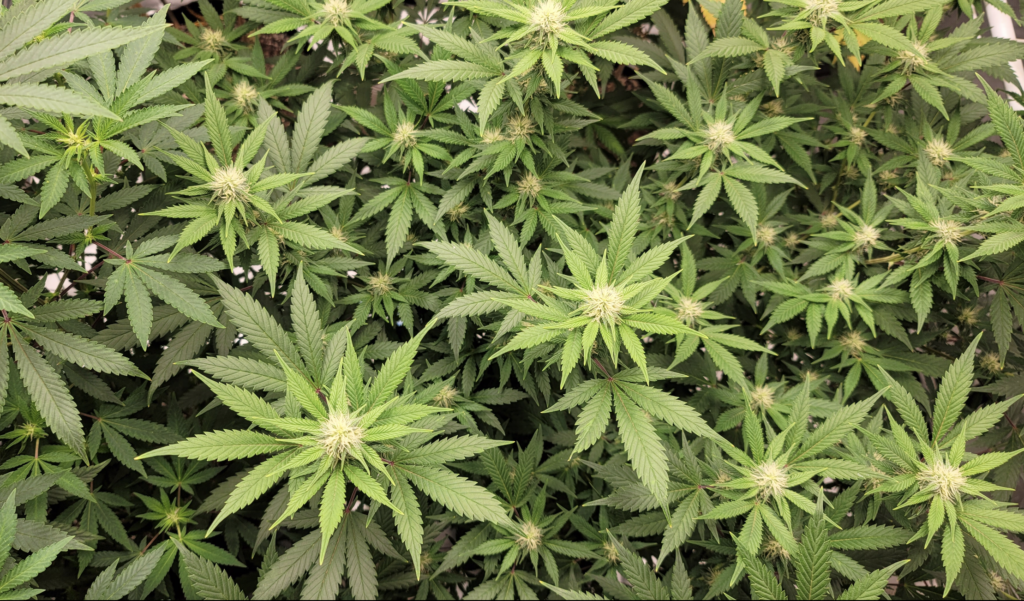If marijuana is rescheduled as the Biden administration has proposed, cannabis businesses would no longer be federally banned from advertising in newspapers and magazines. But, because marijuana would still be illegal, congressional researchers say in a new report that most criminal penalties and collateral consequences for other activities such as possession and distribution “would remain the same.”
In its latest analysis on the impact of rescheduling, the Congressional Research Service (CRS) highlighted a lesser-known effect on the proposed policy change, pointing out that an existing prohibition on advertising Schedule I drugs in written media would be lifted for marijuana if it’s reclassified as a Schedule III drug under the Controlled Substances Act (CSA).
“It is unlawful to knowingly place in any newspaper, magazine, handbill, or other publications any written advertisement that has the purpose of seeking or offering illegally to receive, buy, or distribute a Schedule I controlled substance,” the report says. “The penalties for doing so are up to four years in prison and/or a criminal fine. These penalties would no longer apply if marijuana moves to Schedule III.”
CRS also reiterated that the reclassification would mean that state-legal marijuana businesses could finally take federal tax deductions that they’ve been barred from under an Internal Revenue Service (IRS) code known as 280E. A recent public comment on the rescheduling proposal from the Minority Cannabis Business Association says that modest policy change would significantly benefit small and minority-owned cannabis operators, while adding tens of thousands of new jobs over the next several years.
But while these reforms would certainly benefit state marijuana markets, the new CRS report stresses that cannabis would still remain federally illegal, as Schedule III drugs are prohibited unless they’re prescribed by a doctor. That would require the Food and Drug Administration (FDA) to approve marijuana as a medicine, which is unlikely given that the agency typically does not green light botanical substances as prescription drugs.
Also, the congressional researchers noted, while criminal penalties associated with Schedule III drugs are generally lower than those applied to Schedule I drugs, most marijuana-related penalties fall under their own category under the CSA and thus wouldn’t change if the drug is reclassified under Schedule III.
“If marijuana moves to Schedule III, this does not mean that all marijuana products would be lawful to manufacture, distribute, or possess,” CRS said. “The manufacture, distribution, dispensing, and possession of marijuana would remain subject to applicable criminal prohibitions under the CSA (21 U.S.C. §§841–844). In addition, marijuana would remain subject to applicable provisions of the Federal Food, Drug, and Cosmetic Act (FDCA). Under the FDCA, a drug containing marijuana would need FDA approval to be lawfully introduced into interstate commerce.”
The report also describes various collateral consequences of facing a cannabis-related convictions, including potential ineligibility for employment, gun ownership, public housing, certain financial services, immigration and education benefits.
“If marijuana moves to Schedule III, most of the consequences for its use or for marijuana-related convictions would remain the same,” it says. “While the use of marijuana by prescription for medical purposes would become lawful, marijuana products that are available in dispensaries in many states across the country are not currently available via lawful prescription. It is uncertain if or when these products might be approved for such use and available via lawful prescription if marijuana is rescheduled to Schedule III.”
CRS has published a number of reports focused on the limitations of a Schedule III reclassification with respect to the largely continued criminalization under federal statute.
But it also released a report earlier this month explain how the reform would free up Washington, D.C. to finally legalize adult-use cannabis sales, which it’s been barred from doing under a longstanding congressional appropriations rider. That’s because the rider specifically says D.C. can’t use its funds to “legalize or otherwise reduce penalties associated with the possession, use, or distribution of any schedule I substance.”
Therefore, in addition to removing certain marijuana research barriers and allowing state-licensed cannabis business to take federal tax deductions, moving the plant to Schedule III would also remove the local sales ban in the nation’s capital, which would be a welcomed development for lawmakers who have long contested the policy rider but have been unsuccessful in past attempts to remove it.
H/T: www.marijuanamoment.net



